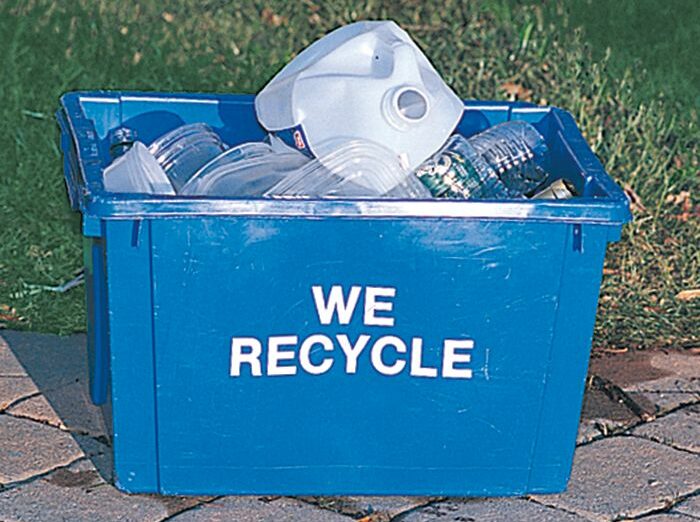
By Pam Wright
Local Journalism Initiative Reporter
As of Jan. 1, 2024, Chatham-Kent will be out of the recycling business.
As per provincial legislation, residential blue box pickup services will transition to a private company, while institutional, commercial and industrial users will be left to their own devices.
Recently, council unanimously approved a recommendation from administration to suspend the collection of recyclables, but at least one councillor says the move is “taking a step backwards.
Chatham Coun. Marjorie Crew said the Ontario-wide approach “isn’t sitting well” with her, as organizations – such as non-profits – will be forced to hire out the service privately, find an alternative or toss recyclables in the garbage.
“They already work on a shoe string. A lot of them are environmentally in tune and try to do their part,” Crew said of non-profits.
According to the engineering report, those ineligible for roadside pickup include industrial and commercial properties, day cares, places of worship, municipal buildings or facilities, campgrounds and trailer parks without seasonal households, and commercial farms.
Council heard the new scheme will be overseen and operated by producer responsibility organizations (PRO) on behalf of producers. The intent of the “extended producer responsibility model” is for the biggest producers of blue box materials to be “fully accountable and financially responsible” for collecting and recycling their blue box materials when discarded by consumers. Chatham-Kent is one of 126 communities transitioning to the new model.
On the upside, the provincial takeover will save C-K taxpayers an estimated $3.5 million over the next four years.
When asked by Crew to explain the blue box changes, engineer Huda Oda, head of waste management for the municipality, said the recycling transition has been in the works for a number of years with the aim of placing the burden of recycling costs on the producers that create the most recycling materials.
Oda said Chatham-Kent will hand over the responsibility for curbside recycling at the end of the year and PRO will take over.
Currently, Oda said the municipality provides blue box service for institutional, commercial and industrial properties because it makes sense, but Chatham-Kent is not mandated to do so.
“We have been providing a level of service that is higher than we are mandated for, ” Oda told council when explaining the new rules.
To better understand the change, the municipality studied recycling collection for an eight-week period late last year. Overall, ineligible sources accounted for only five per cent of the blue box pickups, equalling 1,749 stops. Of those, only 445 participated at least once, with the average bi-weekly recycling pickup at 11 per cent.
According to Edward Soldo, C-K’s general manager of engineering and infrastructure, it’s not yet known who will take over the residential contract, as the decision will be made by PRO, but the information will be made public as soon as its available.
Soldo said Chatham-Kent will continue to staff the waste transfer stations and will be paid by the province to do so. However, it is not yet known if recyclables will be accepted at C-K waste transfer stations as that will be determined by the new company.
“But everything else, when it comes to recycling and dealing with complaints from customers will be transitioning over to whoever the PRO has hired,” Soldo told council, noting handing over recycling to a different entity is quite complicated.
Oda said the municipality is keeping the dates of garbage and recycling pickup the same, in an attempt to avoid confusion for residents and additional information will be provided to explain the transition.
The province is expected to fully transition to the extended producer responsibility model in January 2026 with a standardized blue box program to be implemented across Ontario.







Recycling is a joke anyways. If you actually knew how much of it is trucked away and incinerated you’d be shocked. You feel you are doing your part by putting out the bins every week, but it just ends up making the air worse.